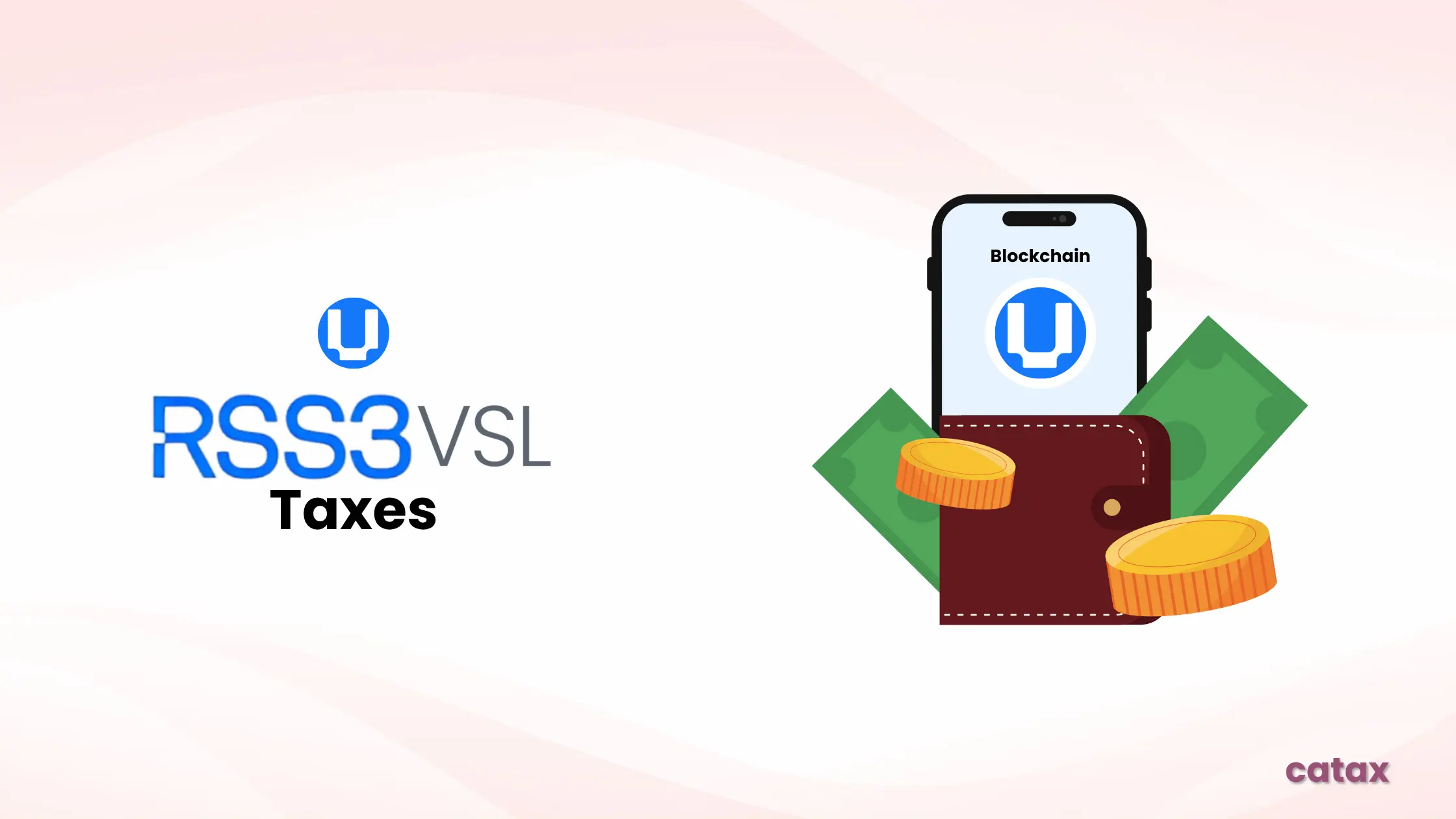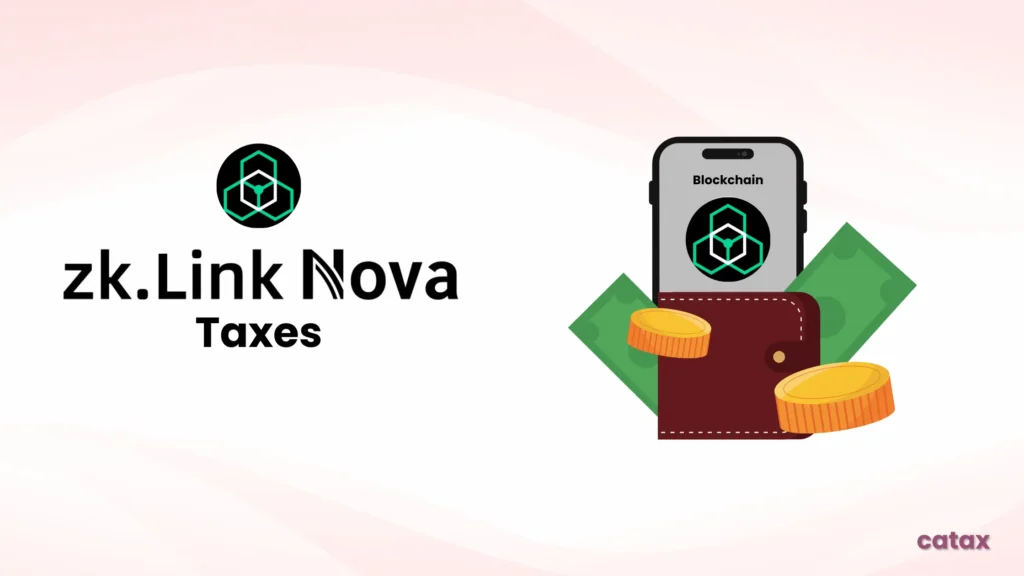Cryptocurrency tax rules vary by country, and RSS3 VSL taxes transactions may be taxed differently depending on local regulations. Whether you buy, sell, trade, or stake VSL, understanding how tax authorities classify these actions helps you stay compliant and avoid penalties.
This guide breaks down RSS3 VSL tax rules so you can manage your crypto taxes confidently and stay aligned with legal requirements.

How to Connect Your RSS3 VSL Wallet to Catax?
To easily track your RSS3 VSL transactions and calculate taxes, follow these steps to connect your wallet to Catax:
- Open your RSS3 VSL wallet or use a supported block explorer (such as MetaMask, Ledger, or any compatible RSS3 wallet).
- Copy your public wallet address from your RSS3 VSL wallet.
On Catax:
- Log in to your Catax account and select your country.
- Choose Chain, then search for RSS3 VSL Wallet.
- Paste your public wallet address and click Connect.
Once connected, Catax will automatically import your VSL transactions and help you simplify your crypto tax reporting.
Calculate My Taxes ➤Are RSS3 VSL Transactions Taxable?
Yes, in most countries, RSS3 VSL transactions are taxable. Depending on how you use your VSL tokens, tax authorities may classify them as capital assets, property, or income.
When Do You Have to Pay Taxes on RSS3 VSL?
You may be subject to taxes in the following scenarios:
- Selling VSL for a profit – If you sell RSS3 VSL tokens for more than you paid, the gains are typically taxed as capital gains.
- Trading VSL for other cryptocurrencies – Swapping RSS3 VSL for ETH, BTC, or other tokens is usually treated as a taxable event.
- Using VSL for purchases – Spending VSL on goods or services may trigger capital gains tax if the token’s value has increased since acquisition.
- Earning VSL through staking or rewards – RSS3 VSL received via staking, participation rewards, or node incentives is generally taxed as income at the time of receipt.
- Getting paid in VSL – If you’re compensated in VSL, the token’s fair market value at the time of payment is taxable income.
Tax treatment may vary by jurisdiction. Always review your local crypto tax laws or consult a qualified tax advisor.
Can You Deduct Trading Fees and Other Costs?
Whether you can deduct fees and related expenses for managing RSS3 VSL depends on your country’s crypto tax rules.
Some jurisdictions allow deductions for:
- Transaction/trading fees when buying or selling VSL
- Network/gas fees involved in VSL transfers
Others may only allow:
- The original purchase price (cost basis) as the deductible amount, without additional allowances.
Always consult your local tax code or a crypto-savvy tax professional for accurate guidance.
How Is RSS3 VSL Taxed Based on Holding Period?
The tax rate on your VSL tokens may be affected by how long you’ve held them:
- Short-term holdings (less than 12 months) – Typically taxed at regular income tax rates.
- Long-term holdings (over 12 months) – In many countries, long-term capital gains may be taxed at a lower rate.
- Flat-rate systems – Some jurisdictions apply a standardized tax rate on crypto transactions, regardless of holding time.
Understanding your country’s specific crypto tax rules can help you minimize tax liabilities and optimize your strategy for RSS3 VSL.
You can also check out our Country-Specific Guide for Crypto in Your country. This guide provides insights on regulations, tax implications, and compliance measures breifly explained for each country.
How Is Staking Income Taxed?
You stake RSS3 VSL tokens to earn passive income, and your country’s tax laws determine how you must pay taxes on that income. Some countries tax staking rewards as soon as you receive them, while others only apply taxes when you sell or exchange those tokens.
How Countries Tax Staking Rewards?
- Taxed as capital gains – In other regions, taxes are only due when you sell the rewards. You’ll owe tax on the profit made between receiving and selling the VSL tokens.
Knowing how your country treats staking rewards can help you prepare for tax liabilities, even if you haven’t sold the tokens yet.
Always check your local tax rules before staking RSS3 VSL.
Can You Claim RSS3 VSL Losses for Tax Benefits?
Not every VSL transaction results in a profit. If you sell VSL at a loss, you may be able to claim tax benefits. Here’s how different tax systems approach crypto losses:
- Loss offsets – Some countries allow crypto losses to offset capital gains, so you are only taxed on your net profit.
- Loss carryforward – In cases where you have more losses than gains, you may be allowed to carry forward losses to offset future gains.
- Limited or no deductions – In some jurisdictions, crypto losses cannot be deducted, so you receive no tax benefit.
Keeping accurate records of your VSL transactions is essential to claiming and reporting losses properly.
How to Stay Compliant with RSS3 VSL Tax Rules?
As global regulations around crypto evolve, compliance becomes increasingly important. Here’s how to manage your VSL tax obligations effectively:
- Understand your country’s classification – Know if your VSL activity is taxed as income, capital gains, or business income.
- Verify the allowed deductions – You can deduct expenses such as trading fees, staking costs, gas fees, and hardware wallet costs.
- Maintain complete transaction records – Keep logs of every VSL transaction, including purchases, sales, transfers, and staking rewards.
- Use a crypto tax platform like Catax – Automated tools help you track all RSS3 VSL transactions and generate tax reports easily.
- Consult a tax professional – If you’re unsure how your jurisdiction taxes VSL, seek guidance from a crypto tax expert to stay compliant.


